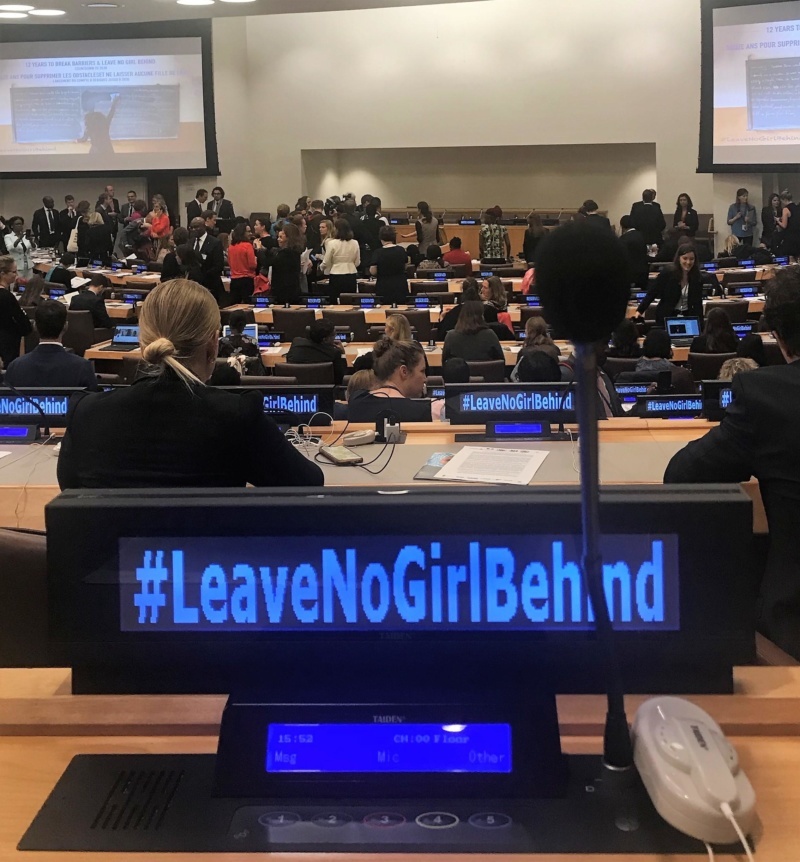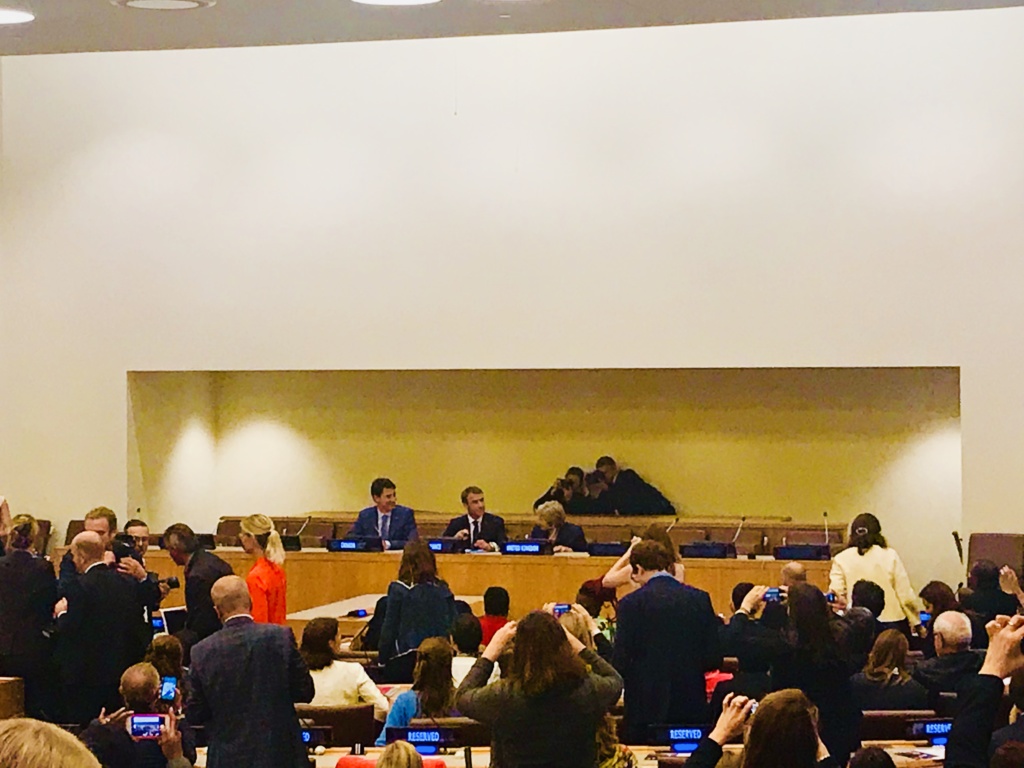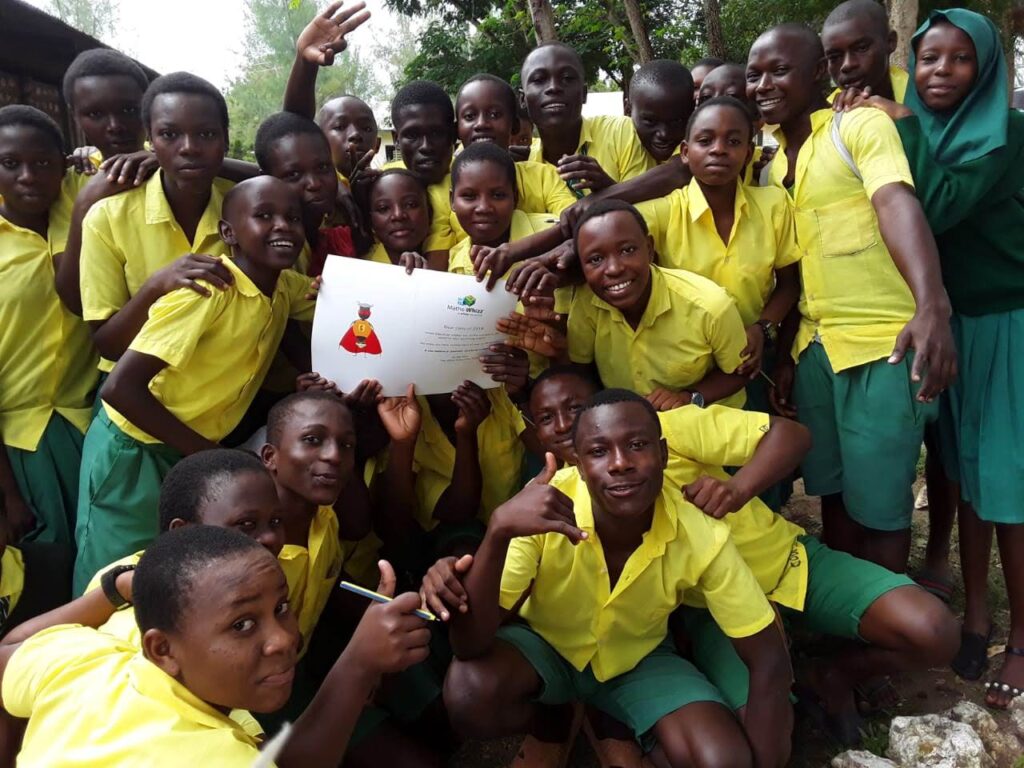“We need to let girls know that they too can become the engineers and scientists of tomorrow”
Audrey Azoulay – Director-General, UNESCO
Hello, I’m Fiona and I’m the International Bid Manager at Whizz Education. Last month I had the honour of representing Whizz at two prestigious events held during the United Nations General Assembly in New York City: The “12 Years to Break Barriers and Leave No Girl Behind” and “High-Level Meeting on Action for Refugee Education” seminars.
Led by government leaders of Canada, France, Kenya, Mali, Niger, and the United Kingdom, 12 Years to Break Barriers and Leave No Girl Behind was a high-profile event aimed to highlight the importance of inclusive education for girls. Other partners included: Education Cannot Wait, Global Citizen, UN Women, Global Partnership for Education, PLAN International, and the United Nations Girls Education Initiative (UNGEI)

During the seminar, world leaders including Justin Trudeau, Theresa May and Emmanuel Macron acknowledged that barriers to education, particularly for girls, pose one of the greatest challenges of our time and made powerful commitments to support global education stakeholders to work together to break down these barriers.
Canadian Prime Minister Trudeau spoke passionately about how his country, in its role as Chair of the 2018 G7 discussions, had made education for girls, especially in conflict and crisis situations, a key priority. He also said that investing in education helps to make sure everyone reaches their full potential. His French counterpart, Emmanuel Macron, promised to continue commitments to education and spoke of the importance of quality of education and training for teachers.
UK Prime Minister, Theresa May, reiterated the UK’s commitment to investing in education, including Phase 2 of the Girls Education Challenge which helps the world’s most disadvantaged girls improve their lives through education, finds better ways of getting girls into school and ensuring they receive a quality of education to transform their future.
The panel acknowledged that tremendous progress is being made, with pledges of $1.8 billion dollars from G7 participants, and an additional $2 billion dollars from the World Bank, the largest investment of its kind and a substantial step to working together to reach SDG4 commitments to girls education.

The event saw a number of substantial funding pledges made from many governments, including:
- An additional $40 million to Global Partnerships for Education (GPE) from Norway (on top of $276 million already pledged)
- $100 million dollars to GPE and $50 million to Education Cannot Wait from the Netherlands
- $185 million dollars to GPE and $46 million to Education Cannot Wait from Denmark
The core themes of this forum were very much in line with Whizz Education’s core goals and making sure that every child is supported to reach their full potential.
While calling on partners to work together to close the gaps to dismantle barriers to education for girls, the speakers highlighted the importance of investing in teachers to provide greater quality learning. This is very much in line with Whizz Education’s model of supporting teachers and students to raise quality in learning and teaching.
There was also a focus on the importance of data and the need for evidence-based reporting to make decisions, which is already very close to our hearts at Whizz. We place a lot of importance on real-time reporting to monitor students progress and to support teachers and education ministries to access valuable data that can be used to improve policy and plans.
Kenya’s Education Minister, Amina Mohamed spoke about the lessons from Kenya on steps needed to reform their education system and the importance of working with transformative, data-driven partners who can help them see not only where they are going but why they are not getting there – something we make a priority in our Kenya project iMlango. iMlango is a pioneering public-private partnership with the Kenyan Ministry of Education, Science and Technology (MOEST) and the UK Department for International Development (DFID), which aims to improve Kenyan pupils’ learning outcomes, enrolment and retention. Since 2015, Whizz Education has trained and continues to support nearly 3000 teachers to bring individualised learning to 108,000 pupils in 205 rural schools and communities.

This event for me really highlighted the importance of the work we are doing at Whizz and that we are not alone in tackling one of the greatest challenges of our time, breaking down barriers to learning so that all children can fulfil their potential. We will continue to work with partners, in Kenya and worldwide, to support students and teachers and ensure that no girl is left behind.
